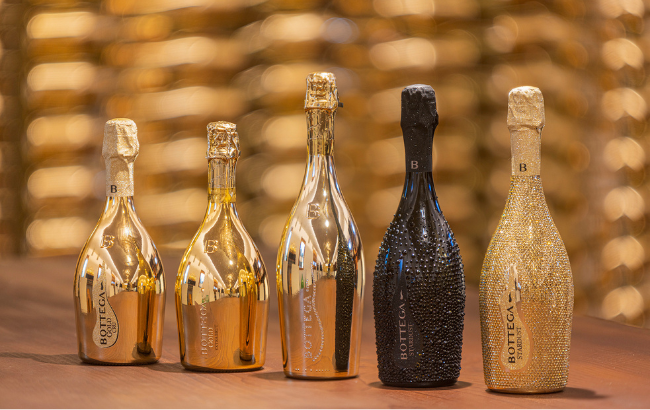Prague bans night time pub crawls
By Jessica MasonPrague city councillors have banned night time pub crawls in an effort to target “more cultured” tourists.

The decision to abolish the pub crawls was made because the Czech capital has agreed that it doesn’t want the type of visitor “who comes for a short time only to get drunk”.
Prague council deputy mayor Zdenek Hrib confirmed that from hereon in “it will not be possible to have guided tours between 10pm and 6am”.
According to reports via the national press, the city’s councillors have banned night-time pub crawls organised by travel agencies because the city would prefer to target “more cultured” tourists rather than British stag parties.
Speaking about the decision to reporters on Monday, another deputy mayor for Prague city hall Jiri Pospisil revealed that the council was “seeking a more cultured, wealthier tourist” and “not one who comes for a short time only to get drunk”.
Vaclav Starek, the head of the Czech Association of Hotels and Restaurants, told Agence France-Presse that he supported the decision.
Starek explained to AFP: “Trips to the centre in search of beer have been a problem for local people and for other tourists too. I don’t think this will hurt our sales. Nobody will be banned from going to a pub but these nightly organised pub crawls … are nothing we would need.”
Speaking to the drinks business about the situation, Simon Old, Prague specialist for two of the UK’s leading stag and hen party providers, StagWeb.co.uk and GoHen.com said: “It’s a bit of a half-hearted ban to stop pub crawls from 10pm.”
Old explained: “Whilst they’re well within their rights to try and curb anti-social behaviour, people will just do their own pub crawls or do them earlier on” and told db: “Being a destination that has profited for years on its reputation for being a bit of a party city, it seems like they’re trying to have their cake and eat it with this. I don’t think it will deter stags and hens from heading to Prague at all.”
Partner Content
Reports pointed out how the Czech capital of 1.3 million people has for a long time been a popular destination for travellers who have historically made the Czech Republic a drinking destination. Added to this, the Czech Republic has often been extremely accepting of foreign visitors, offering employment opportunities and especially with its tie-ups with the Philippines which has assisted in it having increased the quota for Filipino citizens from 2,500 work permits in 2023 to 10,500 in 2024.
Speaking about this move, the Czech ambassador said that the aim was to “create another level of relationship between our two countries but also enhance the two economies and eventually help transfer know-how from the Czech Republic to the Philippines and create a new generation of Filipinos with a strong connections to the Czech Republic”.
In 2023, 128 litres of beer per head was consumed by the population in the Czech Republic, despite a steady decline since the pandemic with people notably drinking much less beer in the Czech Republic than they ever have before, according to new data.
Recent study data also reiterated how beer is still cheaper than water in some restaurants and many pubs in the Unesco-listed historic centre still offering lager for less than €3 a pint.
The move is not the first time a European city has taken steps to dissuade British tourists from visiting. For instance, last year Amsterdam launched its own campaign of “stay away” adverts that had been specifically targeted at young British men when they entered terms into search engines such as “stag party Amsterdam”, “cheap hotel Amsterdam” and “pub crawl Amsterdam”.
Amsterdam’s stay away campaign adverts focused on flagging how inebriation could lead to fines, a criminal record, hospitalisation and permanent health damage and was also perceived as successful in its mission.
It is no secret that the Czech Republic has begun sharpening the focus on its brewing heritage rather than supporting over-indulgence. For instance, at the end of last year Czech glassware was been added to the World Heritage list by The United Nations Educational, Scientific and Cultural Organisation UNESCO. Just before this, Žatec and the Landscape of the Saaz Hops were also added to the list.
Each small change made by the Czech Republic of late has served to assist the market’s economy alongside its reputation for high quality beer. For instance, last year it was revealed that the Czech Republic would see draught beer tax rise by 6% as part of a raft of radical changes as part of a plan named ‘Czechia in Shape’.
Other European cities have also introduced measures to deter mass tourism, including Venice, which has reportedly limited tour group sizes and banned loudspeakers while Barcelona officials have said the city will have banned all apartment rentals to tourists by 2028.
British tourists have been considered widely to be looking to drink even prior to setting off on their trips with 60% of Brits recently saying it is ‘never too early’ for a holiday beer and new survey results showing that a large majority of Brits (72%) believed a beer pre-10am is a “must” on holidays.
Related news
America’s top 50 craft breweries




